PM risks entering a new climate war with an old battle plan
Anthony Albanese’s negative concentration on the Opposition Leader means Peter Dutton is setting the political agenda again as he tries to turn carbon emissions into an economic issue.
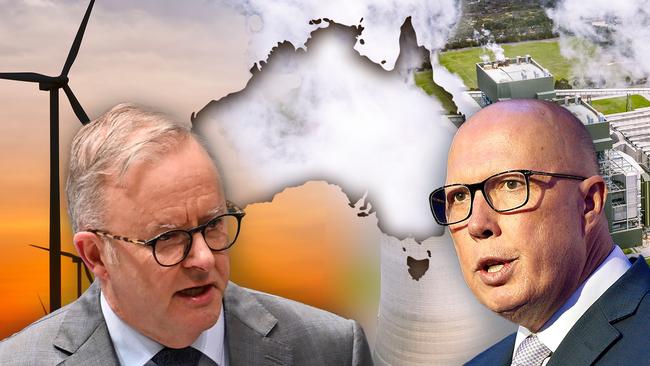
With less than a year to go before the scheduled election in mid-May next year and an almost universal acceptance that a Labor minority government is the likeliest outcome at this stage, a new electoral climate war contains enormous risks for Labor and the Coalition.
The obvious risk for the Coalition is that its plan will alienate moderate Liberal voters, entrench Climate 200-funded and campaigning teal independents in affluent seats in Sydney and Melbourne, and face retribution from superannuation and banking investment funds.
But the risk for Labor is that a call to a climate war may not be as enthusiastically answered as in previous elections because the climate change imperative is no longer just about carbon-cutting targets but how the targets are achieved and at what cost.
Also, a negative concentration on the Opposition Leader means he is setting the political agenda again as he tries to turn carbon emissions into an economic issue, specifically cost of living, and concentrates on jobs, rising prices and mortgage rates in Parramatta, now, before a Paris target 25 years away.
Climate Change and Energy Minister Chris Bowen’s declaration that the election will be a referendum on nuclear power and that the Coalition doesn’t care about climate change plays into the negative Labor approach on Coalition policy but, again, doesn’t address the “kitchen table” pressure of rising energy prices.
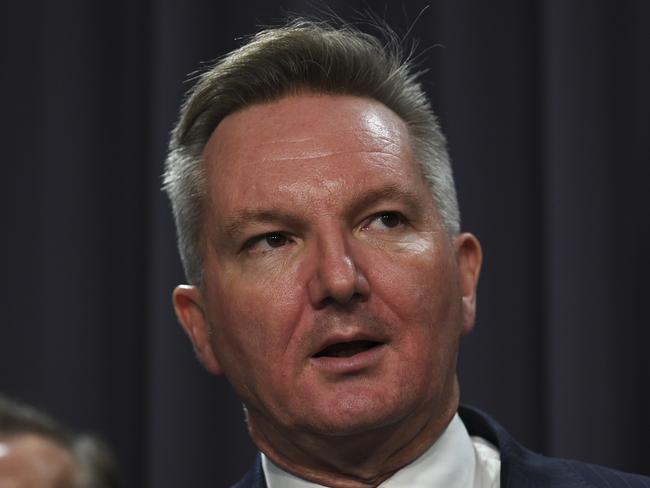
Significantly, there is growing evidence to suggest public support for nuclear power; a growing disaffection with the Greens; certainly unabated concerns about rising prices; antipathy towards, or at a least lack of awareness about, Labor’s plans; and growing disillusion with the Labor leadership.
As the experience of the doomed referendum on the Indigenous voice to parliament in October last year showed, an alignment of Labor, the Greens, teal independents, business elites and a majority of popular support in polls does not guarantee victory if there is not an honest, commonsense, transparent and reassuring argument that the economic and social costs will not outweigh the advantages.
The voice referendum failure demonstrated that two-thirds of voting Australians did not accept Labor’s assurances, empty slogans and tropes, or being talked down to by affluent elites.
In Canberra on the King’s Birthday public holiday on Monday, the Prime Minister called a full press conference in his parliamentary courtyard for no other reason than to attack the Opposition Leader and accuse him of backing out of the international Paris Agreement and backtracking on the legislated 2030 emissions reduction target of 43 per cent.
Albanese declared: “The first time I spoke from here in the Prime Minister’s Courtyard was when we legislated Australia’s 2030 target, creating certainty for business, certainty for investment, certainty for jobs.
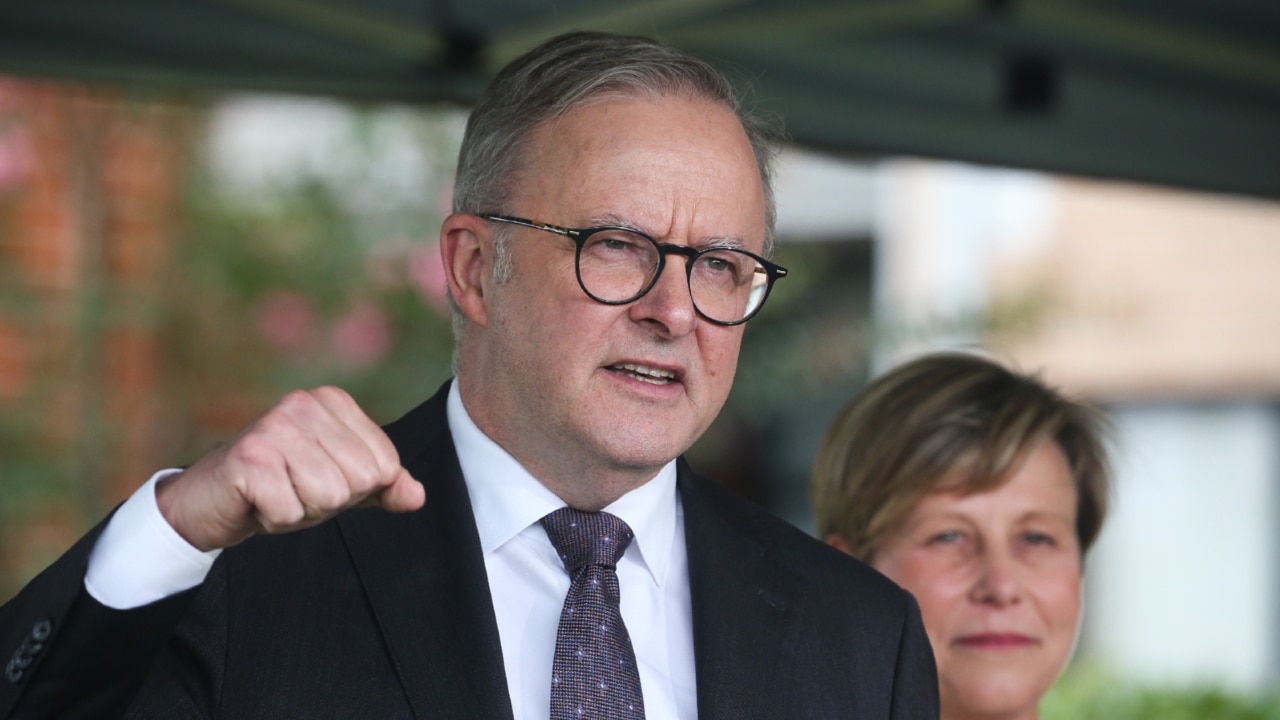
“Peter Dutton is walking away from climate action. His decision to abandon the 2030 target means him walking away from the Paris accord. If you walk away from the Paris accord, you’ll be standing with Libya, Yemen and Iran, and against all of our major trading partners and all of our important allies.”
In the ultimate insult, Albanese said: “Peter Dutton is worse than Scott Morrison on climate change. He is all negativity and no plan.”
Albanese was reacting to Dutton’s revelation last Saturday in The Weekend Australian that although the Opposition Leader remained committed to the Paris Agreement’s 2050 net-zero emissions target he would not sign up to interim targets that could not be achieved.
It is a measure of desperation for a prime minister to elevate the opposition leader to the status of an equal in a political debate on a policy and then continue the attack for the rest of week.
The frenetic response – Bowen was also out only hours after Dutton’s comments were published – revealed Labor’s concerns and highlighted the danger in fighting old climate change battles without recognising Dutton’s change in strategy, which is to align the shift in interim carbon emissions reduction targets in 2030 and 2035 with altered economic conditions and changing relations with trading partners.
After a couple of days, when Albanese was asked on the ABC whether he conceded that with greater emissions reduction ambition came higher household costs, the Prime Minister responded: “Not at all.” Then he attacked Dutton again without once mentioning the cost of living. “Peter Dutton is proposing abandoning the targets, abandoning investment certainty, which will lead to less investment in the lead-up to 2040, at some time when this nuclear fantasy will take place,” Albanese said.
Dutton’s response, after stating in The Weekend Australian interview that he wasn’t going to sign up to an unachievable target and destroy agriculture, manufacturing and create sovereign risk with our Japanese and Korean trading partners, was to argue families knew the economy was in strife.
“Families know it in their own budgets,” Dutton said. “They know it when they go to the checkout, they know when they go to the bowser, they know when they’re paying their insurance or their premiums on private health insurance and other items within their household budget.
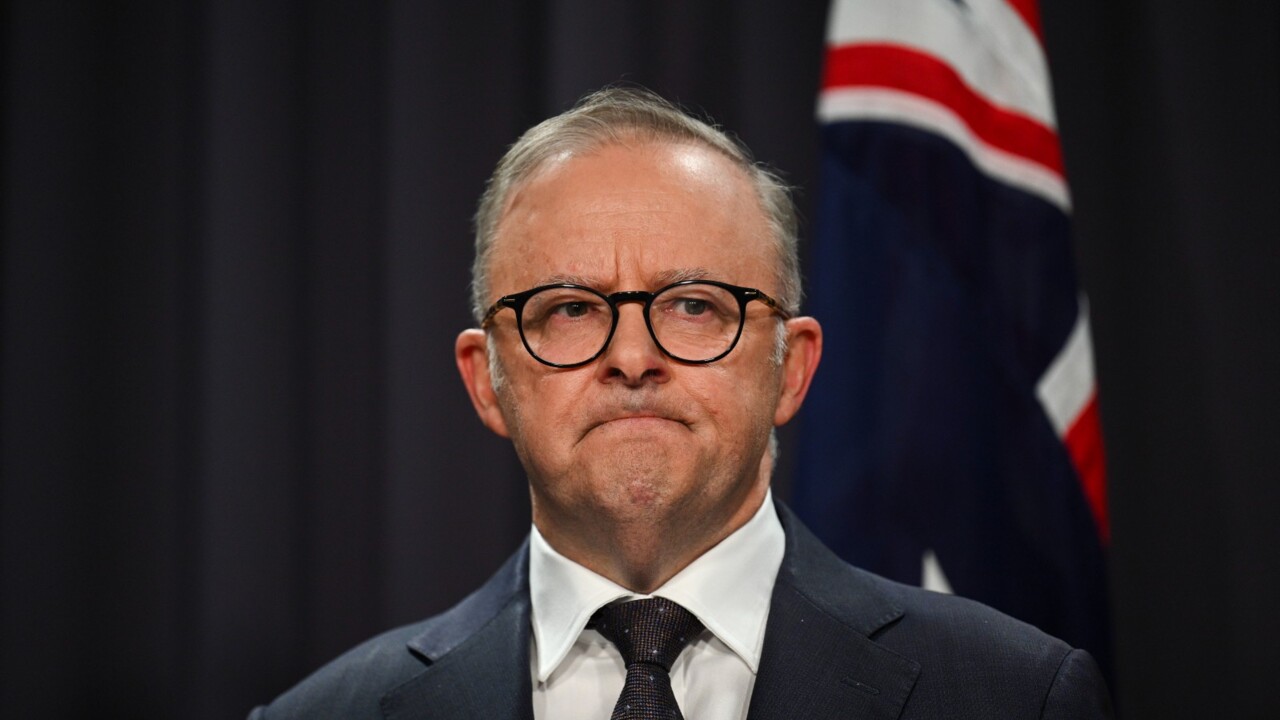
“The Prime Minister says he wants the next election to be on energy, well, of course it will be because that’s an integral part of the economy and it will be on the economy that the next election is fought.”
This is the crux of Albanese’s call to another climate war after 20 years and seven elections being fought over climate change, carbon emissions, international targets and energy: will the debate that shifts opinion from Labor, the Coalition, the Greens and teals be about long-term emissions targets or short-term cost of living?
Of course the Greens and teals are in the emissions targets camp, attacking not only Dutton for not wanting to stick to 2030 targets but also Albanese for not having even grander targets and for not banning the use of Australia’s vast and valuable gas resources.
So far Bowen and Albanese are avoiding Dutton’s arguments about the effect on household costs of setting higher emissions targets to concentrate on opposing the Coalition’s call for nuclear energy. Albanese’s arguments that Dutton can’t change the legislated target of 43 per cent emissions reduction by 2030 simply because of changed economic conditions – and that doing so would risk Australia being associated internationally with Libya, Yemen and Iraq – are not logical.
When Albanese justified his government’s biggest economic policy change in rewriting the Coalition’s legislated stage three tax cuts it was on the grounds that “a leader” had to make tough decisions when economic circumstances changed and people were under cost-of-living pressure. If short-term changes to tax to ease cost-of-living pressures can be made, why not interim carbon emissions targets?
As for not wanting to join Libya, Yemen and Iraq in any way, Albanese seems to have forgotten Australia joined all three recently in the contentious UN vote on Palestine when our nearest neighbour and strategic allies didn’t.
What’s more, the latest Newspoll surveys, published as Albanese jumped out of the starting box to attack Dutton, showed the Coalition’s primary vote, 39 per cent, in the best position since before the 2022 election, and the two-party-preferred vote, 50-50, at the equal highest since the election, with Dutton the closest he has ever been on preferred prime minister.
Perhaps even more significantly, the Newspoll also showed that Dutton was seen as more experienced than Albanese and 11 points ahead – 60 to 49 – on being decisive and strong.
While the Prime Minister’s consistent call all week was that Dutton “doesn’t have a plan” the survey also showed that between December last year and last weekend Dutton jumped four points to 59 on having a vision for Australia to move ahead of Albanese, who dropped one point to 58 per cent.
Yet in that period Albanese has given “a tax cut for everyone”, announced a $300 energy rebate, committed billions for infrastructure, especially housing, and released the green-inspired centrepiece policy of a Future Made in Australia with billions for climate change friendly companies and projects.
On Thursday Albanese said: “My vision for Australia is one where you have solar and renewables creating green hydrogen, which is then used to power advanced manufacturing to produce green steel, green aluminium. This is where Australia can have an extraordinary comparative advantage. We can be a renewable energy superpower for the world.”
Dutton, during the same period, enhanced his commitment to nuclear energy in the 2040s to meet the net-zero 2050 target and announced a cut in immigration.
If a vision for Australia and having a plan for Australia are interchangeable it would seem Dutton’s “nuclear fantasy” is more attractive than Albanese spending billions on climate-friendly green hydrogen and renewable energy.
Albanese’s frenetic response to Dutton’s energy proposals are seen as indication of an early election – despite the Prime Minister’s repeated declarations that he plans to go full term – and a campaign blitz before the economy gets worse and prices and interest rates stay higher for longer.
But it is also possible that, just as he did in December last year – when Labor was clearly adrift and Dutton was setting the agenda after the referendum failure, the first of the immigration detention bungles and Labor’s ambivalent approach to anti-Israel demonstrations in Australia – that Albanese is trying to avoid falling further.
Last week the parliament and the political agenda were again dominated by immigration debacles, social divisions over Gaza (including Albanese being locked out of his electorate office for six months by pro-Palestinian protests) and the lowest economic growth, outside the pandemic, for 30 years.
Of course Albanese would seize on what he saw as a distraction from Dutton on climate change, but Labor needs to be careful not to go into a new election with an old battle plan, as Kim Beazley did in 2001, refighting the GST, and not talking about things, such as border protection and immigration, that were the real concerns for the public.


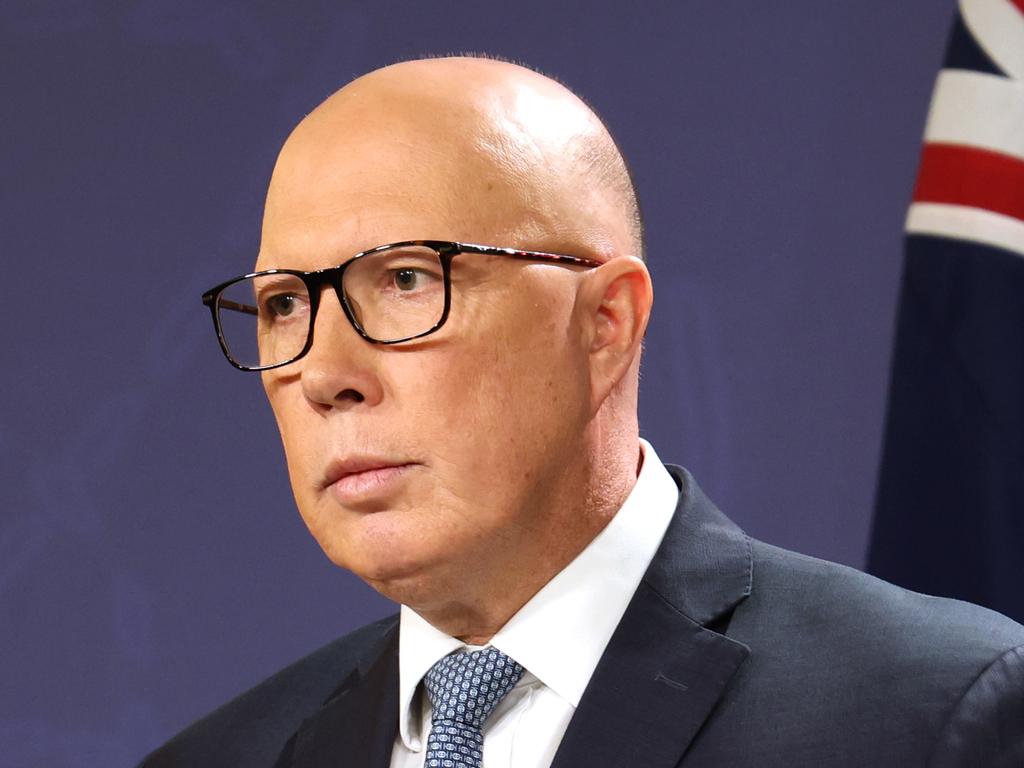
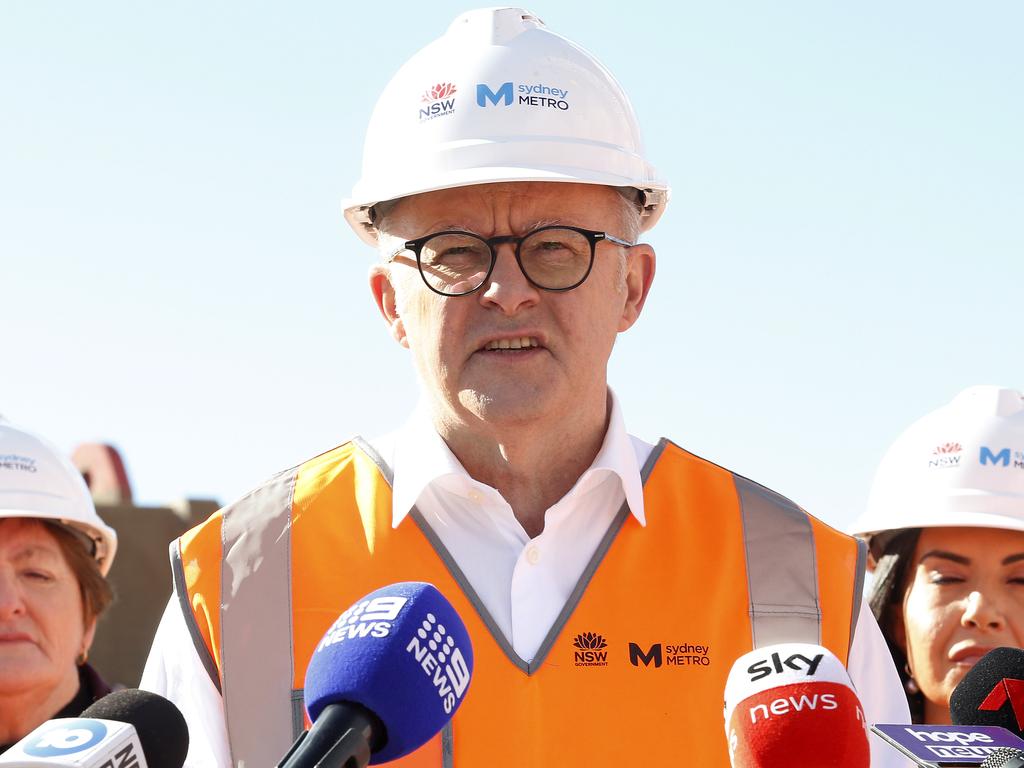
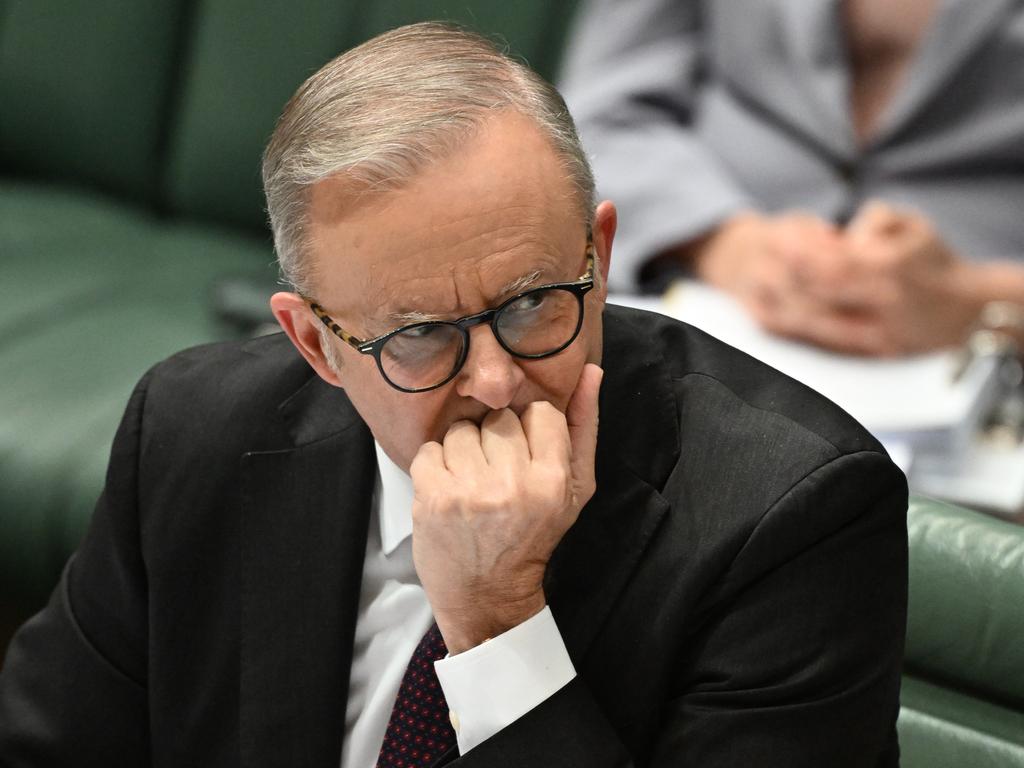
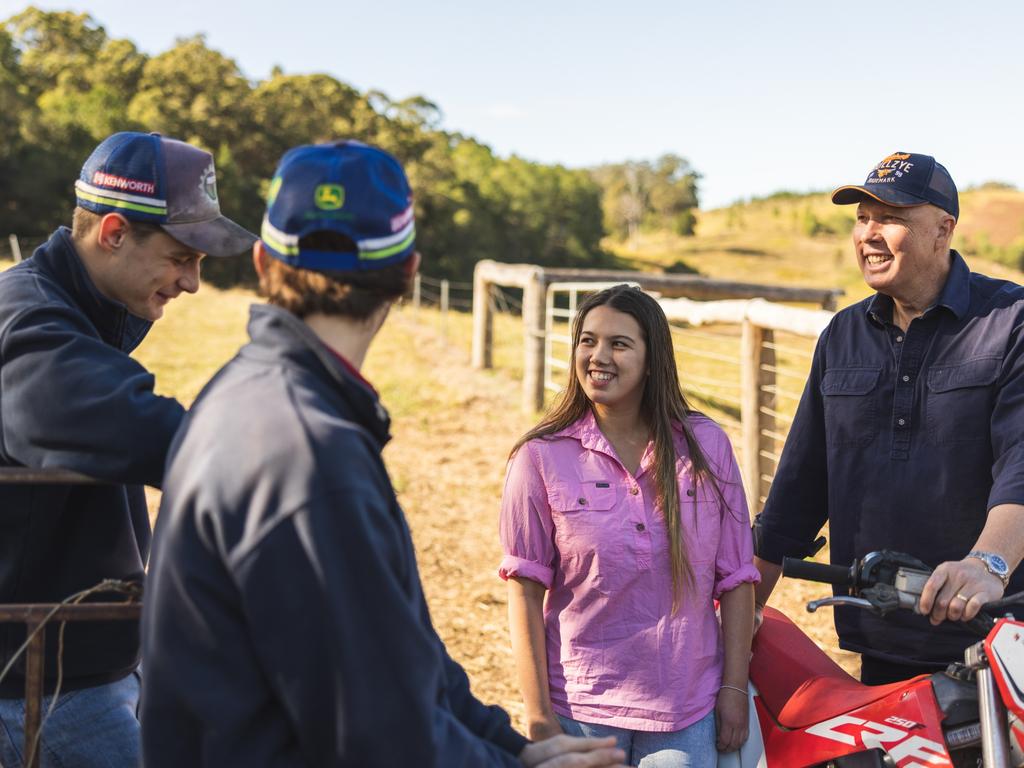
Anthony Albanese pounced on the opportunity to declare a new climate change war at the next election as soon as he could after Peter Dutton refused to commit to “unachievable” interim carbon emission targets as part of the Paris Agreement for net-zero emissions by 2050.